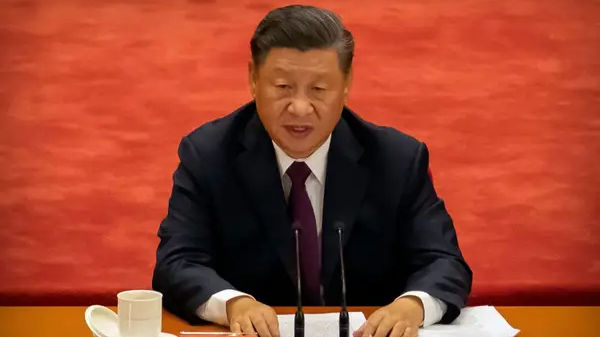China
maintains its economy by functioning as an enormous, complex machine
with cogs that move synchronously. In fact, there are 150 million
registered businesses that cater to 1.4 billion customers, creating
employment, food, and everything else that keeps the machine running.
Now,
in a move that can jeopardize the stability of the country’s economy, the
Chinese government is interfering in the economy in ways the country
hasn’t seen in decades, all in the name of pandemic control. Undoubtedly, it is
causing a havoc in the manufacturing powerhouse of the world.
Also read: Prashant Kishor denies Congress offer, suggests collective will, strong leadership
Businesses
fear that China is reverting to its former strategy of a planned economy.
The spike in the coronavirus cases in Beijing has also intensified concerns
worldwide, spurring a stock sell-off on fears that the situation could
worsen. From March through April, China has reported around half a million
COVID cases and 48 deaths since.
Many
governments around the world have been striving to maintain a balance
between pandemic control and keeping the economy running, the past
two years. Until recently, when omicron, the milder but more contagious
variant, caused a major outbreak in China. While the rest of the world eases
restrictions, the country is placing greater emphasis on its ‘Zero COVID’
policy, as evidenced from the ongoing Shanghai lockdown.
Also read: Donetsk, Luhansk under continuous heavy Russian attack: Ukraine officials
According
to investment bank Nomura, some 344 million people (a quarter of the country’s
population), are under some or the other degree of lockdown. The lockdowns
have turned Shanghai, China’s largest city with a population of 25 million
people, into a ghost town; farmers in the northeastern region have been
cooped up during the spring sowing; and numerous companies, shops, and restaurants
around the country have shut down.
The
punitive measures are having a significant impact on the economy. As per
official data, national consumption fell by 3.5 percent in March,
while business at restaurants fell by 16 percent.
Zhiwu
Chen, an economist at the University of Hong Kong said, “This is not only
making it impossible for many private businesses to survive, but also
accelerating outbound immigration and quickly dampening willingness to invest.
Once people lose confidence in the country’s future, it will be extremely
difficult for the economy to recover from the zero-COVID policy’s impact.”
Also read: Elon Musk’s ‘free speech’ Twitter may run into trouble with Indian laws
The
current disruptions, according to business owners and managers, are worse and
more pervasive than those from early 2020, when logistics, commerce, and
industrial output across much of the country had bounced back to normal much
sooner. The government’s digital surveillance systems to curb vehicle and human
movements were less extensive back then.
The
Chinese business community is watching with bated breath to see if the Shanghai
lockdown model will be imposed on other cities as well. The move is reminiscent
of a planned economy, in which the government regulates commercial activities
rather than allowing supply and demand to be determined by the market.
During
the pandemic, the Shanghai government disregarded commercial mechanisms and
attempted to feed 25 million people on its own. The not-so-well thought out
move led to a scarcity of supplies and a proliferation of black markets.
Also read: North Korea’s Kim Jong Un promises swift bolstering of nuclear capacity
Commercial
trucks have a tough time distributing food and household supplies to Shanghai
due to COVID restrictions. Only vehicles having passes are allowed on the roads
within the city. Some operators are willing to pay $2,000 for a day pass on the
black market.
Unfortunately,
the cost is then factored into the prices of the groceries they sell to the
locals.
That’s
not all. Because diapers, baby formula, and toilet paper are not considered as
basic needs, some local committees allow only government-organized grocery
distributions; others do not allow residents to purchase these products at all.
In some places, fruits, beer, and coffee are considered frivolous commodities.
Also read: Le Pen seeks National Assembly win after missing out on French presidency
China
had a planned economy from the time it was founded in 1949 to the end of 1978.
Throughout most of the economy, the state directed and controlled a substantial
portion of the country’s economic output, established production targets,
controlled prices, and distributed resources. China gradually began to abandon
the concept because it only culminated in poverty. It didn’t work in the Soviet
Union, and it’s certainly not working now in North Korea.







